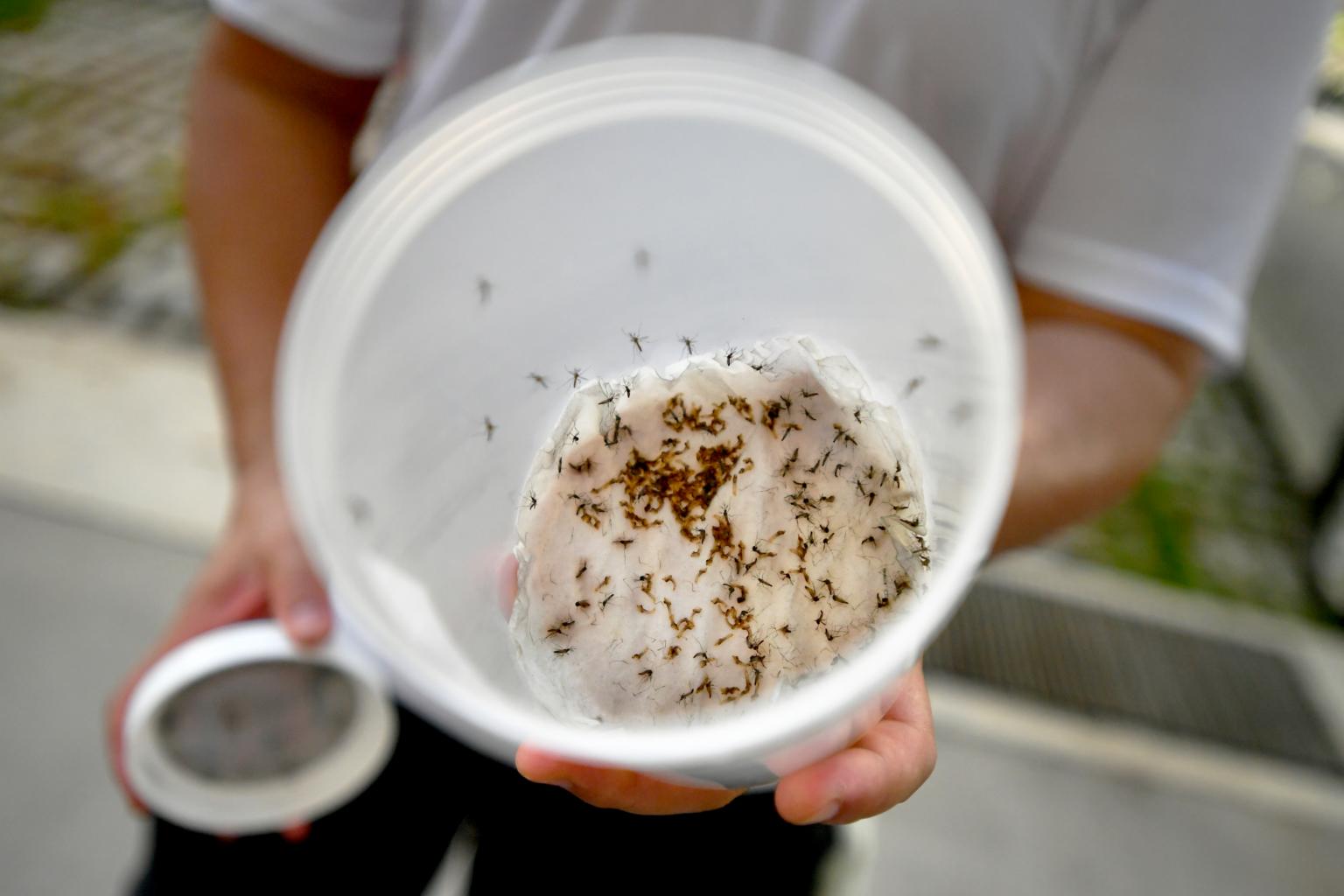Specially bred mosquitoes to be released across Yishun and Tampines by March 2022
Sign up now: Get ST's newsletters delivered to your inbox

Wolbachia-Aedes mosquitoes were introduced within test sites and led to a significant decrease in the mosquito population.
PHOTO: LIM YAOHUI
Follow topic:
SINGAPORE - Residents of Housing Board blocks across Yishun and Tampines may notice more mosquitoes in the coming weeks.
But these insects are not out for blood.
As part of Project Wolbachia, the National Environment Agency (NEA) will release specially bred mosquitoes across all the 1,455 HDB blocks in these two towns, which roughly account for 15 per cent of all HDB blocks in Singapore.
The project expansion to cover the rest of Yishun and Tampines is slated to be completed by March 2022.
These specially bred Aedes aegypti mosquitoes are all male and carry the Wolbachia bacterium. After mating with their female counterparts, the resulting eggs do not hatch, thus suppressing their population.
Wolbachia-Aedes mosquitoes were introduced within test sites in Yishun and Tampines and the NEA found that this led to a significant decrease in the mosquito population.
As of May 2020, about two mosquitoes are caught each week for every 100 Gravitraps in some areas, a marked decrease from roughly 20 to 30 mosquitoes a week for every 100 Gravitraps back in November 2019.
Gravitraps are small black cylinders that trap female Aedes aegypti mosquitoes looking for water surfaces to lay their eggs.
The decrease in the mosquito population translates to reduced incidences of dengue, said Associate Professor Ng Lee Ching, director of NEA's Environmental Health Institute.
"These encouraging preliminary results from the study sites give us confidence to extend releases to more areas," Prof Ng said, adding that the NEA aims to eventually reduce the number of Wolbachia-Aedes mosquitoes released.
The expansion of Project Wolbachia is meant to complement the NEA's current vector control efforts to curb the spread of dengue during this year's particularly bad outbreak.
There have already been 17,249 cases of dengue fever as of Monday afternoon, exceeding last year's total number of 15,998 cases.
At least 16 people have died so far.
This year's surge in cases has been driven by several factors, including the initial surfacing of a less frequently seen dengue strain, as well as warmer temperatures and rain.
The circuit breaker measures may have also contributed to the rise in cases. The Aedes aegypti mosquito bites in the day, so more people staying at home could have resulted in increased numbers of infections.
While these measures were lifted a month ago, the number of dengue cases continues to increase.
Members of the public are reminded by the NEA to remain vigilant and continue following preventive measures, such as the five-step Mozzie Wipeout.

